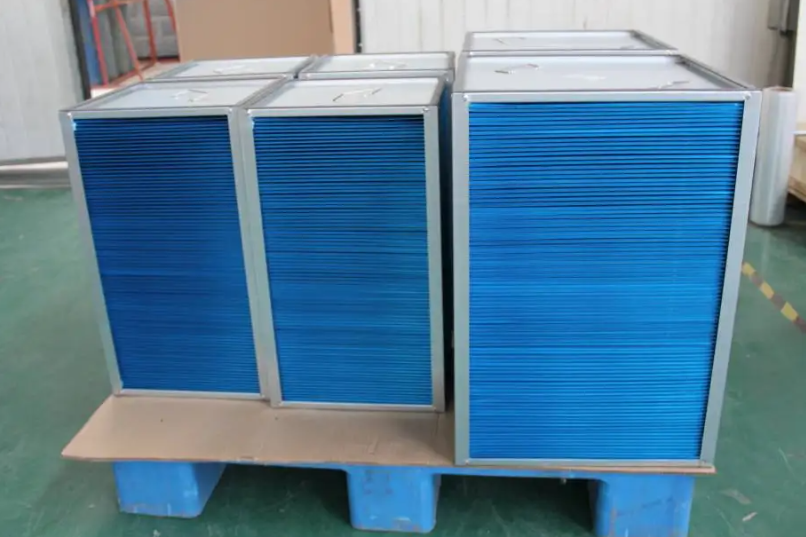Grain drying is an important step in ensuring safe storage and reducing losses, and the drying heat exchanger plays a crucial role in this process. The grain drying heat exchanger can quickly complete the grain drying process and improve production efficiency through an efficient heat transfer mechanism. Meanwhile, adopting waste heat recovery technology can significantly reduce energy consumption, lower production costs, and reduce carbon emissions, which contributes to environmental protection.
structure type
Tube and tube heat exchanger: Tube and tube heat exchangers, also known as shell and tube heat exchangers, have a simple structure, low manufacturing difficulty, and are easy to clean and maintain. During the process of grain drying, high-temperature flue gas generated by burning coal or other fuels is used as the heat medium.
Plate heat exchanger: Plate heat exchangers are widely used in grain drying due to their simple structure and low manufacturing cost.
working principle
Waste heat recovery: During the drying process of grain, a large amount of heat is generated. The waste heat recovery system improves energy efficiency by collecting this waste heat and transferring it to new dry air.
Preheating air: Some advanced grain drying systems utilize waste heat recovery technology to preheat fresh air, further improving drying efficiency.
Application scope
Plate heat exchangers are suitable for various sizes and types of grain drying equipment, whether it is corn drying towers in large grain storage and logistics centers or grain dryers in small farms.
Waste heat recovery plate heat exchanger for grain drying
返信を残す
返信を残す
コメントを投稿するにはログインしてください。

著者について